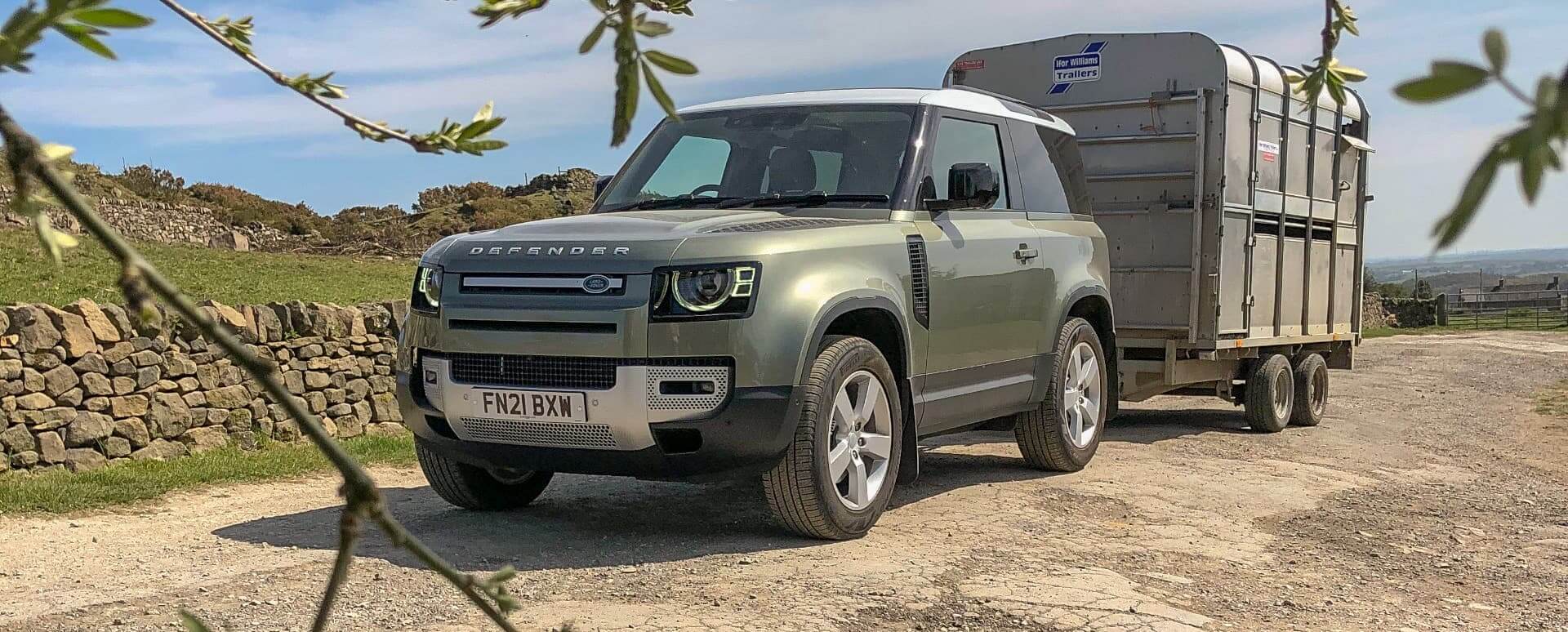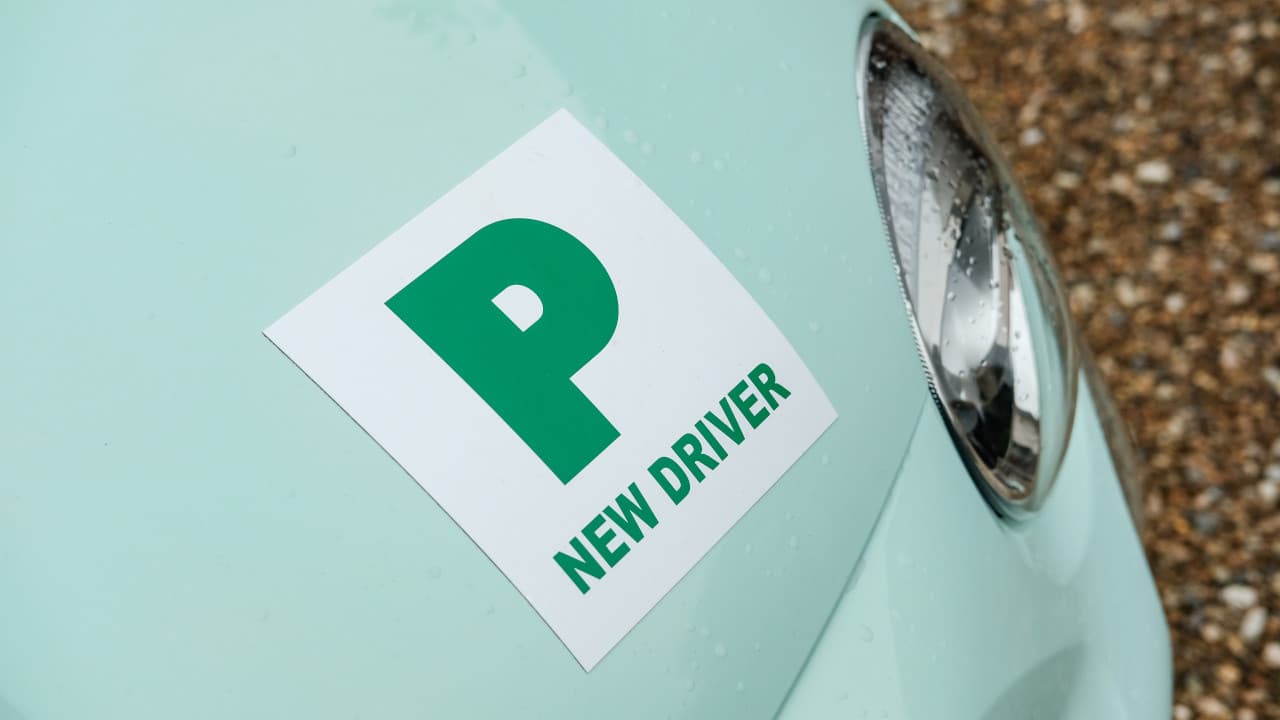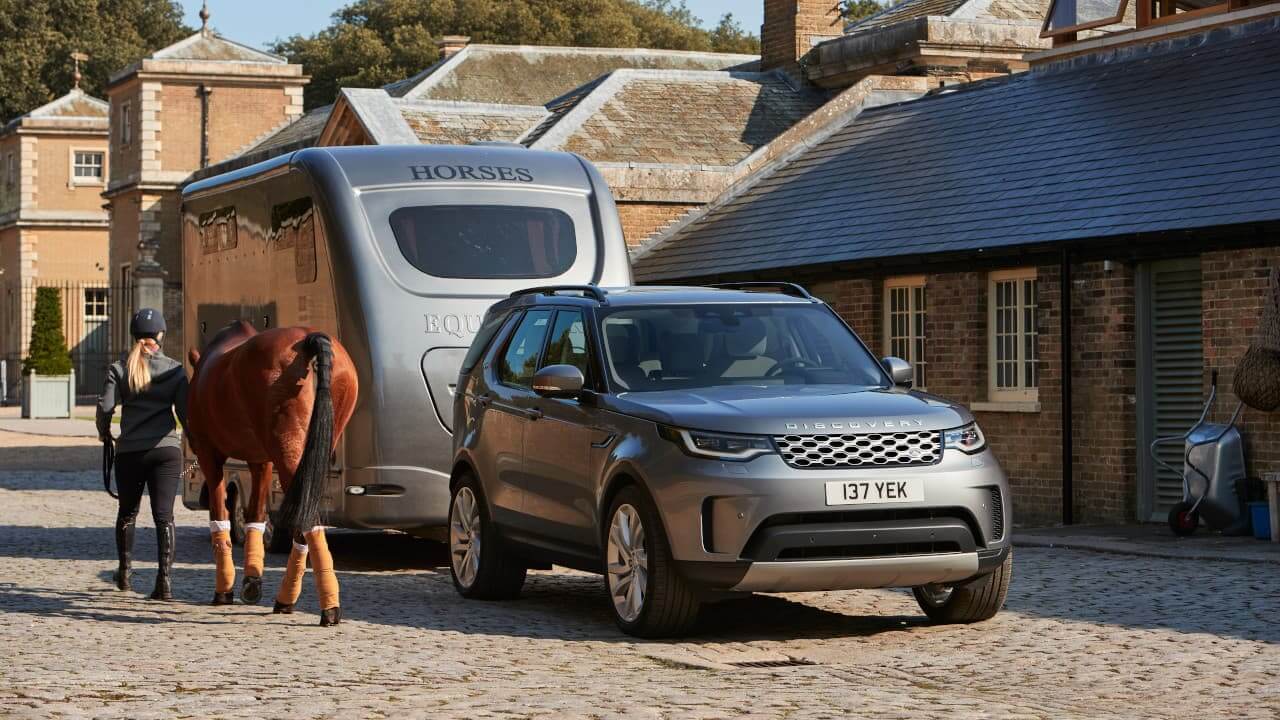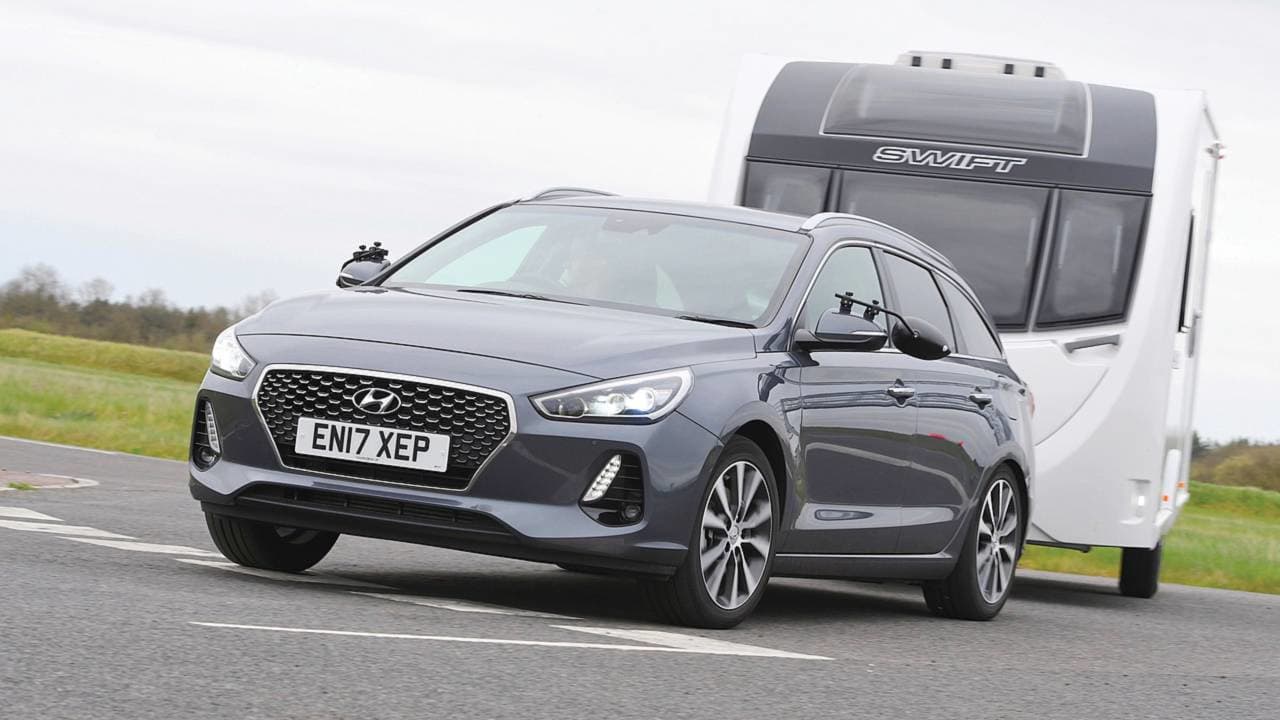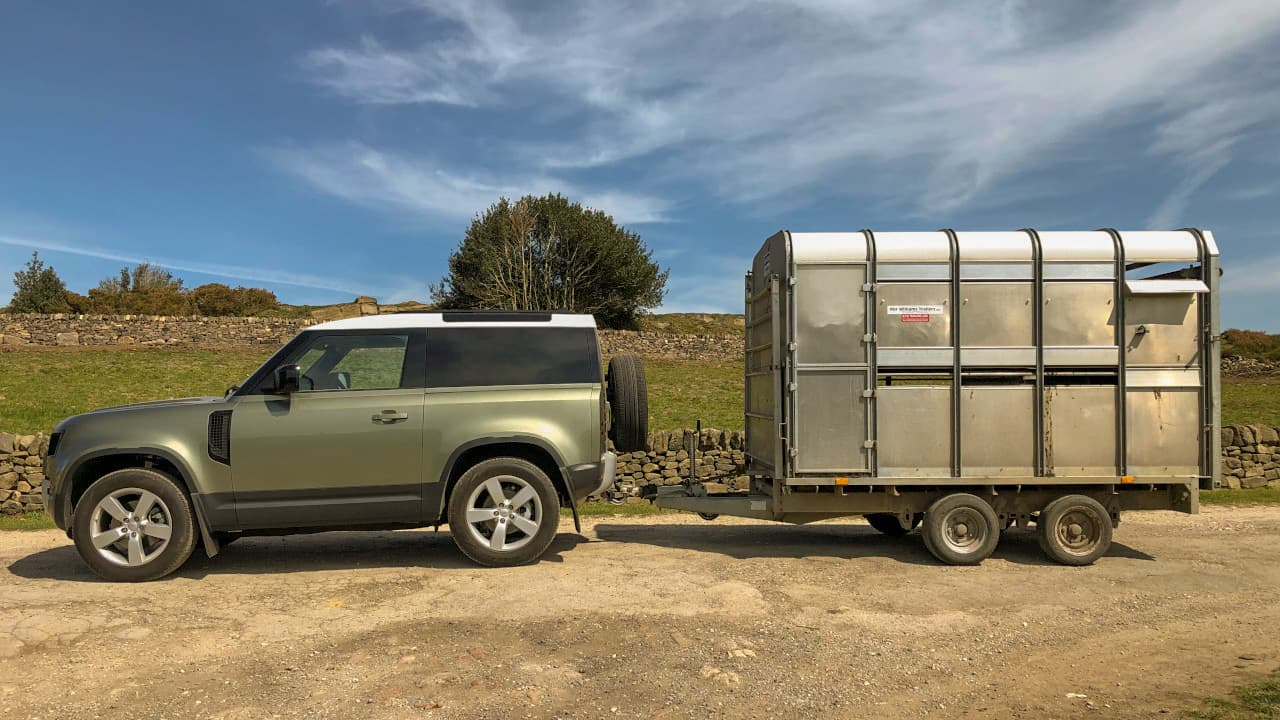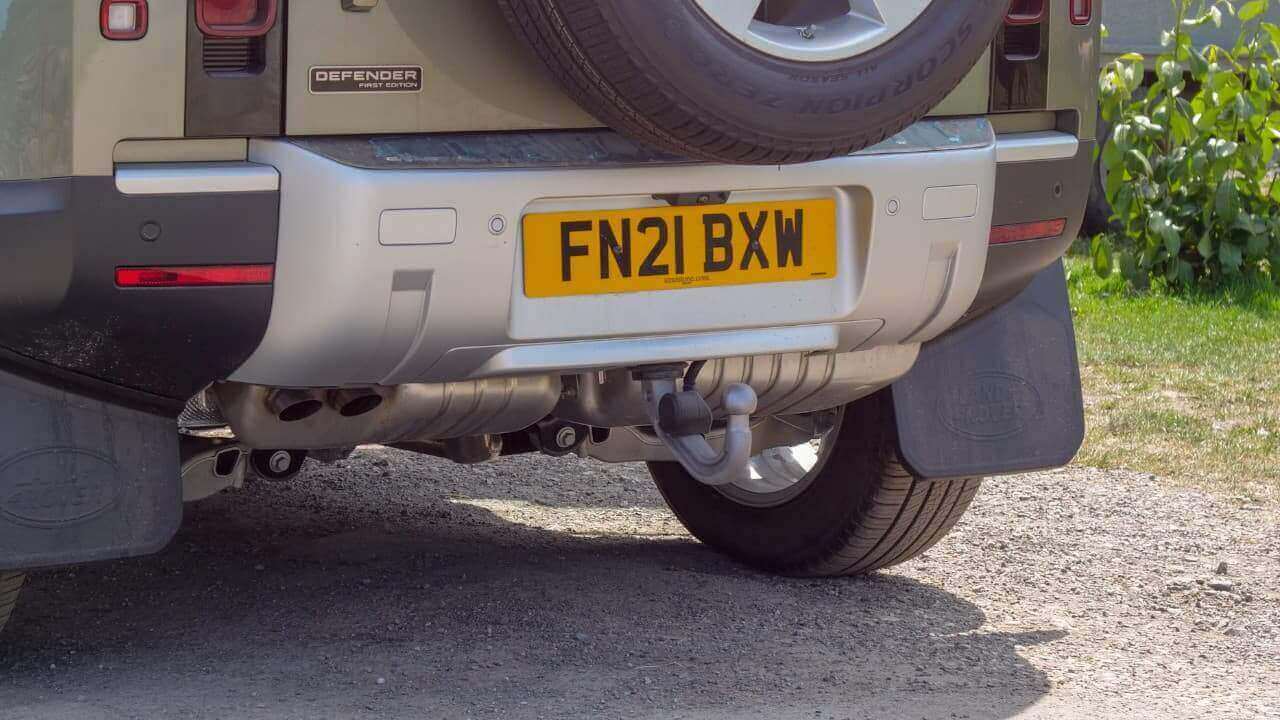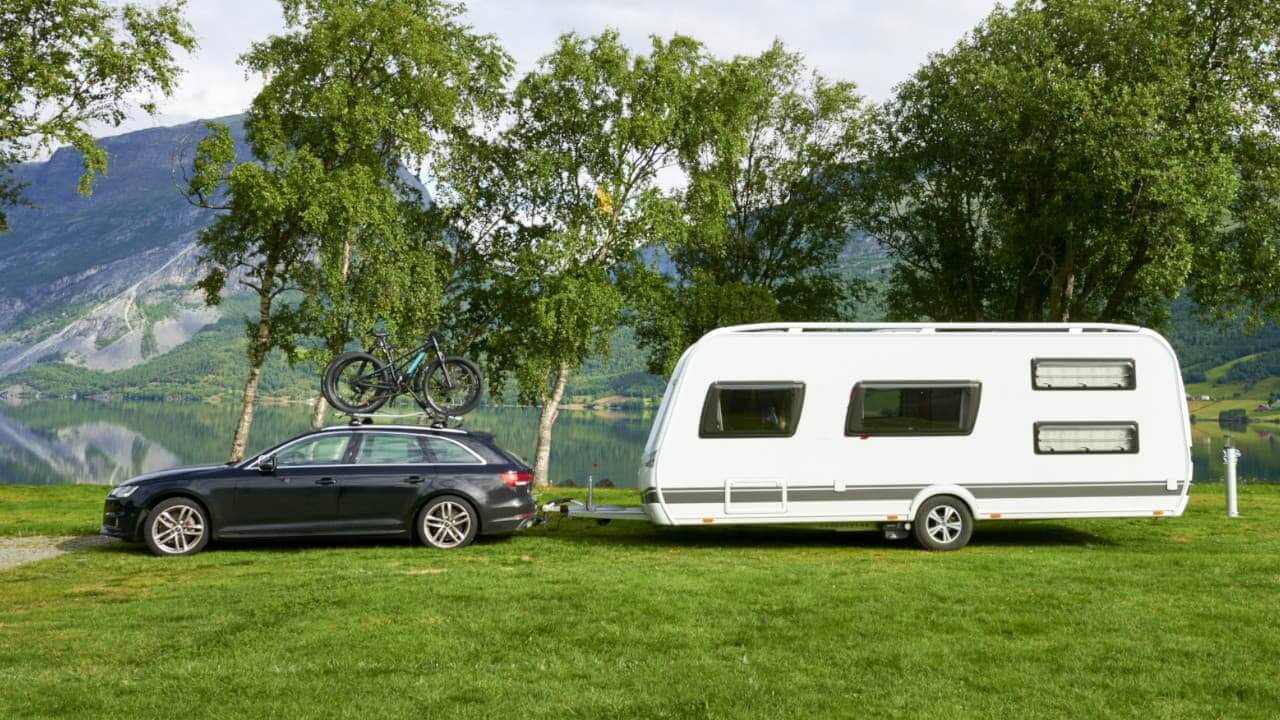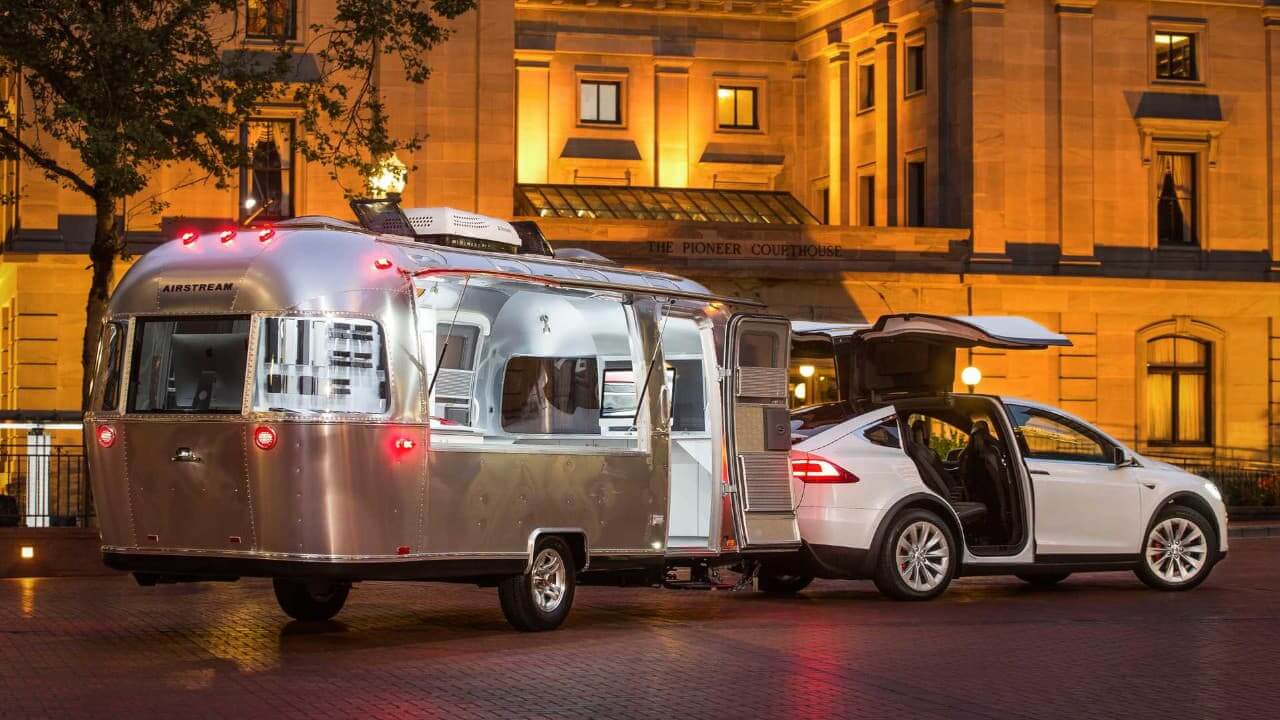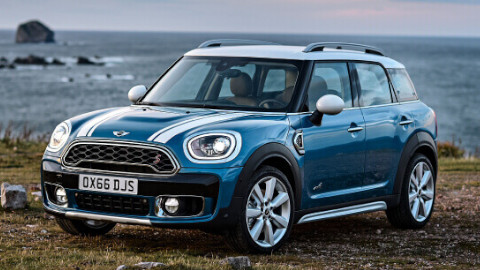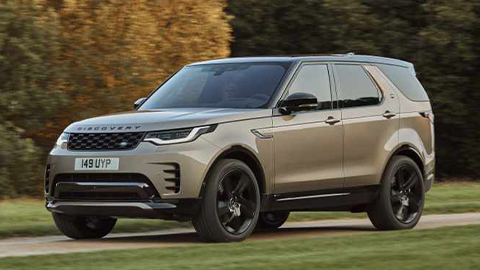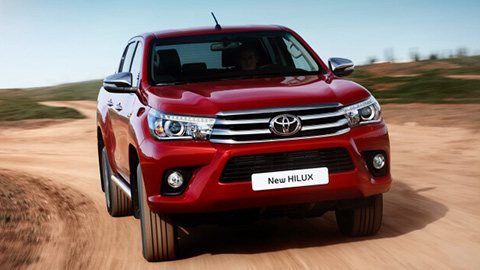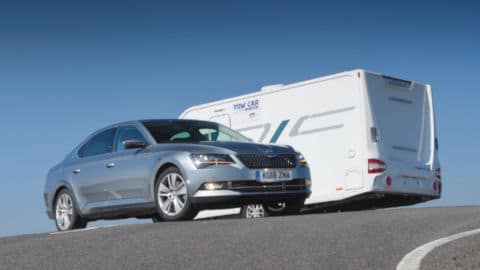Guide to Towing
08th Jul 2021
Towing with a car
When it comes to the subject of towing, there's often a lot of questions such as 'what can I legally tow?' and 'what is the towing capacity of my car?'.
None of these questions are silly and this article covers everything from hitching a trailer to towing a trailer.
Whether you're planning on taking cattle to market, horses to a competition or the whole family away on a caravan holiday; this blog will explain all the legalities and explain how to do so safely.
UK Towing Licence
Before we venture into any of the more complicated areas of towing, it's important to know what your driving licence allows you to tow.
According to gov.uk, anybody who passed their test on or after 1st January 1997 can:
- Drive a car or van up to 3,500kg maximum authorised mass (MAM) towing a trailer of up to 750kg MAM
- Tow a trailer over 750kg MAM as long as the combined MAM of the trailer and the towing vehicle is no more than 3.500kg
You will need to pass the car and trailer driving test if you'd like to tow anything heavier.
However, if you passed your car test before 1st January 1997, you're usually allowed to drive a vehicle and trailer combination up to 8,250kg MAM. You're also allowed to drive a minibus with a trailer over 750kg MAM.
If you're unsure what you are legally allowed to tow on your licence, you can check online.
Towing Capacity
Once you know what weight you are legally allowed to tow on your licence you need to find out what the maximum weight your car can tow safely and legally. The towing capacity of your car will include the fully-loaded weight of the car plus the weight of the trailer, also loaded to full capacity.
Simply check your car's manual to find out its towing capacity. There are usually two maximum towing weights in a vehicle's handbook; a braked weight and an unbraked weight. Trailers that weigh over 750kg, or over half of the car's kerb weight, must be fitted with brakes.
If you're looking at towing heavy trailers we have a helpful blog featuring a list of cars with a 2,000kg towing capacity.
Can I tow a caravan?
Ultimately, towing a caravan is completely down to weights. To answer this question, first of all the driver needs to know what weight they can legally tow on their licence and secondly they need to know what weight their car can safely and legally tow.
It's recommended that the caravan weighs less than 85 percent of the vehicle's kerb weight. The caravan's weight is usually found on a plate around the door frame as well as in the owner's handbook. If you're unsure of the weight, it's best to check with the manufacturer.
The length of the caravan must not exceed 7 metres and the width must not exceed 2.55 metres.
If you've checked your licence and you're able to tow the caravan of your choice but your car isn't up to the task, we've created a handy blog which lists 10 family cars that are best for towing caravans.
Can I tow a trailer?
As long as you have a regular (category B) driving licence you're able to tow a trailer. Whether you passed your test before or after 1st January 1997, will determine the weight of the trailer you are legally allowed to tow.
If you're wanting to tow large trailers such as a cattle box or a horse trailer, you'll more than likely need to have passed your test prior to 1st January 1997 or you'll need to upgrade your licence to include category B+E. This is because the weight of the livestock will also be taken into account with the towing capacity.
Larger vehicles such as SUVs or pickup trucks are best for towing heavy trailers. Plus, it may be worth looking for vehicles with four-wheel drive as it's likely you'll be heading off-road where horses and cattle are involved.
How to tow a caravan or a trailer
Step one: ensure your car's fitted with a tow bar
If you're buying a new car, you can often add a towing package as an optional extra or if you already have your car and are wanting to fit a tow bar, please contact your nearest Evans Halshaw dealership to have one fitted professionally.
Step two: reverse your vehicle up to the trailer
With many modern cars, attaching a trailer is much easier thanks to their reversing cameras. Before reversing up to the trailer, ensure the trailer's coupler is several inches higher than your car's ball hitch and that the trailer coupler latch is in the unlocked position.
Reverse the vehicle until the ball hitch is precisely underneath the trailer coupler and then you can use the trailer's hand crank to lower the coupler until it fits securely over your car's ball hitch.
Step three: securely attach the trailer
Before setting off, you'll need to move the trailer jack out of the way. Some will retract into the trailer, whereas others can be removed completely. You'll also need to make sure you lock the coupler latch and insert the latch pin to prevent the coupler from unlocking whilst you're driving. Safety chains should also be attached to the back of your vehicle, in a cross pattern, as an additional safety measure for keeping the trailer attached to the vehicle at all times during motion.
Step four: connect the trailer's electrical plug to the vehicle's electrical system
Finally, the trailer's electrical plug needs connecting to your vehicle's electrical system and you'll need to check the break lights and indicators on the trailer work.
UK Towing Laws
Some laws are slightly different when you are towing compared to when you're driving a car without a trailer or caravan, so it's essential that you familiarise yourself with UK towing laws before you head out towing.
What is the speed limit when towing?
It's important to be aware that speed limits change once you're towing. You must not exceed 50mph on a single carriageway or 60mph on either a dual carriageway or motorway.
Towing Mirrors
It's a legal requirement to fit your vehicle with extension mirrors when towing a caravan or trailer. These mirrors should allow you to see an area that's 4 metres wide from the side of caravan or trailer.
Can I tow a trailer or a caravan on a motorway?
Caravans and trailers can be towed on a motorway, however, the motorway regulations state that you mustn't use the right-hand lane of a three-lane motorway unless directed to do so (for example, at roadworks due to a lane closure).
Can electric cars tow?
Yes, electric cars are perfectly capable of towing. In fact, an increasing amount of electric cars on sale are now quoting a maximum towing capacity in their brochures.
Thanks to electric cars producing instant torque as soon as the electric motor engages, they're well prepared for pulling off from a standstill, even with a cumbersome weight behind them.
Compared to conventional cars powered by a petrol or diesel internal combustion engine (ICE), electric vehicles do tend to be heavier due to the large batteries and this can impact the maximum towing capacity.
The all-electric range will be significantly reduced when towing, in the same way that you can expect your fuel economy to be drastically reduced when towing, too.
Self-charging hybrids and plug-in hybrid models are also able to tow and there's likely to be more to choose from, we've created an article which lists five of the best hybrid and electric cars that can tow.
Find your perfect towing car at Evans Halshaw
Many cars are capable of towing, however, if you intend to tow heavier trailers such as a horse trailer or a large caravan you'll need a vehicle with a higher towing capacity.
SUVs and pickup trucks tend to boast a heavier towing capacity than other types of cars, but some estates have a pretty impressive towing capability, too.
Explore our extensive range of new and used cars online today.

